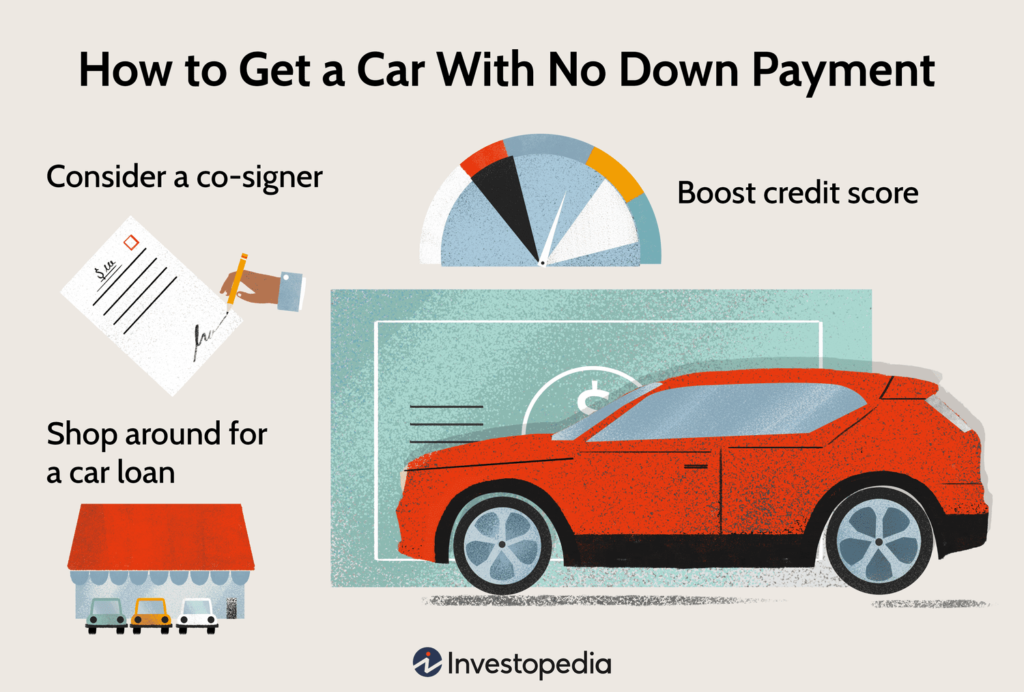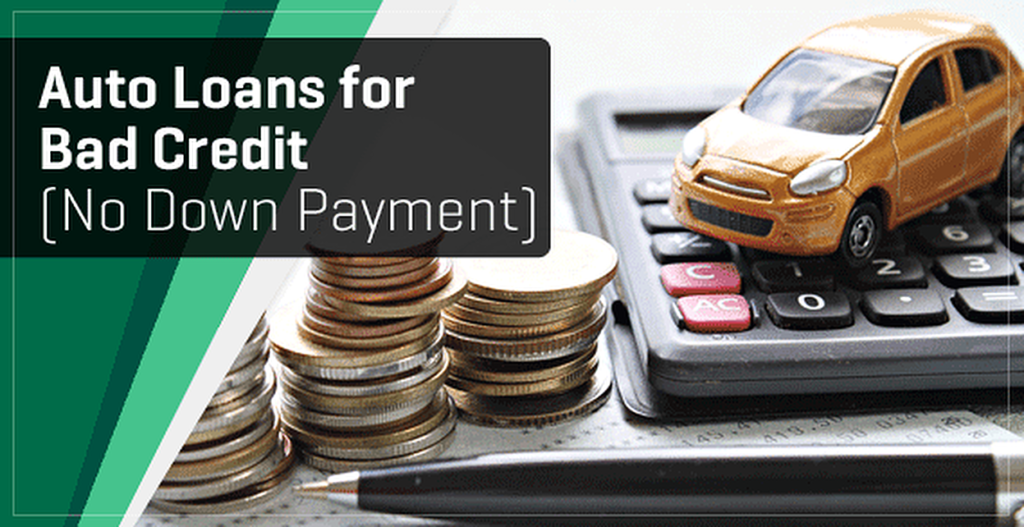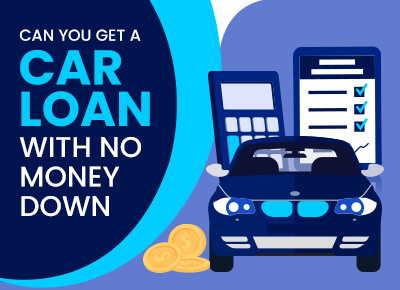I have written an informative article titled “Finance A Car With No Credit And No Money Down” that explores the possibility of obtaining car financing without a credit history and upfront payment. In today’s challenging economic landscape, many individuals face difficulties in securing traditional financing options due to the absence of credit or insufficient funds. Through this article, I will guide you through alternative avenues that allow you to finance a car, regardless of your credit standing, and without having to make a down payment. Whether you are a first-time car buyer or facing financial constraints, this article will equip you with the necessary knowledge to make an informed decision and drive away in the car of your dreams.

Finding Lenders for Financing a Car with No Credit
Exploring Online Lenders
When looking to finance a car with no credit, one avenue to consider is exploring online lenders. These lenders often specialize in working with individuals who have limited or no credit history. Online lenders may have more flexible lending criteria and offer competitive interest rates. It is important to do thorough research and compare different online lenders to ensure they are reputable and offer favorable loan terms.
Contacting Local Credit Unions
Another option to consider when looking for financing a car with no credit is contacting local credit unions. Credit unions are member-owned financial institutions that often offer more personalized services compared to traditional banks. They may have more lenient lending requirements and be more willing to work with individuals who don’t have an established credit history. Contacting credit unions in your area and inquiring about their car loan programs can provide valuable insights and potential financing options.
Checking with Traditional Car Dealerships
Traditional car dealerships often have partnerships with various financing institutions and can help individuals with no credit secure a car loan. These dealerships may have special financing programs in place specifically tailored for individuals with limited or no credit history. Visiting different car dealerships and discussing your financing needs with their finance departments can provide valuable information on available options. However, it is important to carefully review and compare any loan terms offered by dealerships to ensure they are competitive and favorable.
Considering Buy Here Pay Here Dealerships
Buy here pay here dealerships offer financing directly to consumers, which can be an appealing option for those with no credit. These dealerships typically do not run credit checks and base loan approvals on income and employment history. However, it is important to carefully consider the terms and conditions of buy here pay here financing, as interest rates can be high and the selection of cars may be limited. Thoroughly researching different buy here pay here dealerships and reading customer reviews can help ensure a positive experience.
Researching Peer-to-Peer Lending Options
Peer-to-peer lending platforms have gained popularity in recent years and can be an alternative financing option for individuals with no credit. These platforms connect borrowers directly with individual lenders, cutting out traditional financial institutions. Peer-to-peer lending can offer competitive interest rates, flexible loan terms, and more personalized lending experiences. Researching and comparing different peer-to-peer lending platforms can help individuals find suitable financing options for purchasing a car with no credit.
Building Credit for Future Car Purchases
Obtaining a Secured Credit Card
One effective way to build credit for future car purchases is by obtaining a secured credit card. A secured credit card requires a security deposit that serves as collateral for the credit limit. By responsibly using a secured credit card, making on-time payments, and keeping low balances, individuals can establish a positive credit history over time. It is important to choose a secured credit card that reports to the major credit bureaus to ensure that credit-building efforts are reflected in your credit report.
Making On-Time Payments on Existing Bills
Consistently making on-time payments on existing bills, such as rent, utilities, and student loans, is crucial for building a positive credit history. Payment history is one of the most significant factors considered in calculating credit scores. By demonstrating responsible financial behavior and consistently paying bills on time, individuals can gradually improve their creditworthiness. It is essential to prioritize timely bill payments to avoid late fees and negative impacts on credit scores.
Becoming an Authorized User on Someone Else’s Credit Card
Another strategy to build credit is by becoming an authorized user on someone else’s credit card. By being added as an authorized user, the primary cardholder’s positive credit history can be extended to the authorized user’s credit report. It is crucial to choose a credit card with a long and positive payment history and to ensure that the primary cardholder maintains responsible credit card usage. However, it is important to note that not all credit card issuers report authorized user activity to credit bureaus, so it is advisable to confirm this before pursuing this option.
Using Credit Builder Loans
Credit builder loans are specifically designed to help individuals establish or improve their credit. With a credit builder loan, the borrower does not receive the loan funds upfront but instead makes regular payments over a designated period. These payments are reported to credit bureaus, helping to build a positive credit history. Once the loan is paid off, the borrower receives the funds. Researching local banks or credit unions that offer credit builder loans can provide an opportunity to build credit while saving for a future car purchase.
Managing Existing Debts Responsibly
Effectively managing existing debts and obligations is crucial for improving credit and establishing a solid financial foundation. Paying down outstanding debts, such as credit card balances or student loans, can help improve credit utilization ratios and demonstrate responsible financial behavior. It is important to make regular, on-time payments and to avoid acquiring new debts that could strain your financial situation. By responsibly managing existing debts, individuals can position themselves for future car purchases and improve their overall financial well-being.

Negotiating the Best Deal on a Car Loan
Understanding the Importance of a Down Payment
When negotiating a car loan, it is important to understand the significance of a down payment. A down payment is an upfront payment made towards the purchase price of the vehicle. It reduces the amount financed, lowers the monthly payment, and demonstrates financial responsibility to lenders. By making a substantial down payment, individuals can negotiate better loan terms, such as lower interest rates or shorter loan durations. Saving for a down payment is a crucial step in securing a favorable car loan.
Determining an Affordable Monthly Payment
Before entering into negotiations for a car loan, it is essential to determine an affordable monthly payment. Assessing your financial situation, including income, expenses, and other financial obligations, will help you establish a realistic budget. By knowing how much you can comfortably afford to allocate towards a monthly car payment, you can negotiate loan terms that align with your financial capabilities. It is important to consider the total cost of ownership, including insurance, maintenance, and fuel expenses, in addition to the loan payment.
Researching and Comparing Interest Rates
Researching and comparing interest rates from different lenders is crucial when negotiating the best deal on a car loan. Interest rates significantly impact the total cost of borrowing and monthly payment amounts. By shopping around and comparing interest rates from different lenders, individuals can identify favorable rates and secure a competitive loan. Online resources, such as financial comparison websites, can assist in obtaining and comparing interest rates from multiple lenders, allowing for more informed negotiations.
Considering the Length of the Loan
The length of the loan, also referred to as the loan term, is an important factor to consider when negotiating a car loan. While longer loan terms may result in lower monthly payments, they also lead to a higher overall cost of borrowing due to the extended duration and increased interest charges. It is essential to strike a balance between an affordable monthly payment and minimizing the total cost of the loan. Evaluating your financial capabilities and long-term goals will help determine the optimal loan term for your car purchase.
Getting Pre-Approved for a Loan
Getting pre-approved for a loan can provide individuals with negotiating power when shopping for a car. Pre-approval involves submitting a loan application to a lender who will assess your financial information and determine the loan amount you qualify for. By getting pre-approved, you will know the maximum loan amount, interest rate, and repayment terms you can secure. This allows you to focus on negotiating the price of the car without financial uncertainty. Having a pre-approval letter also demonstrates seriousness to sellers and can expedite the purchasing process.
Exploring Alternative Financing Options
Rent-to-Own Car Programs
Rent-to-own car programs can offer an alternative financing option for those with no credit. These programs allow individuals to rent a car for a specific period while also having the option to purchase the vehicle at the end of the rental term. The rental payments made during the program often contribute towards the purchase price. Rent-to-own car programs may be more lenient in their lending criteria and offer more flexible payment options. However, it is important to carefully review the terms and conditions of such programs and compare them to other financing options.
Leasing a Car
Leasing a car provides an alternative to traditional car ownership and can be a viable option for those with no credit history. When leasing a car, individuals make monthly payments for a set period and return the vehicle at the end of the lease term. Leasing typically requires lower monthly payments compared to purchasing a car through financing, as individuals only pay for the depreciation of the vehicle during the lease term. However, it is crucial to understand lease terms, mileage restrictions, and potential additional fees before committing to a lease agreement.
Joining a Car Sharing Service
Another alternative financing option to consider is joining a car sharing service. Car sharing services allow members to access vehicles on-demand for a predetermined fee. This can be an attractive option for individuals who do not need a car on a full-time basis. Car sharing services often have flexible membership plans and pricing models, making them suitable for those with limited or no credit history. However, it is important to carefully assess the costs and terms of the car sharing service to ensure it aligns with your transportation needs and budget.
Using a Co-Signer
Having a co-signer can greatly increase the chances of securing a car loan for individuals with no credit. A co-signer is typically a family member or close friend with good credit and a stable financial situation who agrees to take responsibility for the loan if the borrower fails to make payments. By having a co-signer, lenders have greater confidence in extending credit, as they can rely on the co-signer’s creditworthiness. However, it is crucial to have open and honest discussions with potential co-signers and to ensure a clear understanding of the financial responsibilities and risks involved.
Utilizing Personal Loans
Personal loans can be a viable alternative financing option for those with no credit looking to purchase a vehicle. Personal loans are unsecured loans that can be used for various purposes, including buying a car. They are typically based on the borrower’s creditworthiness and income. While interest rates for personal loans may be higher for individuals with no credit, they can still provide a means of financing a car purchase. It is important to carefully review and compare loan terms from different lenders to secure the most favorable and affordable personal loan for your situation.

Utilizing Government Programs and Assistance
Applying for a Low-Income Auto Loan
For individuals with no credit and limited financial resources, low-income auto loans can provide an essential financing option. These loans are specifically designed to help low-income individuals and families access reliable transportation. Low-income auto loans often have more lenient credit requirements and provide favorable loan terms. Researching local banks, credit unions, or government programs that offer low-income auto loans can provide valuable financing options for those in need.
Exploring State-Specific Car Assistance Programs
Many states offer car assistance programs aimed at helping individuals with limited credit or financial resources secure reliable transportation. These programs may provide financial assistance, low-interest loans, or subsidies towards purchasing a car. Researching state-specific car assistance programs and reaching out to the relevant government agencies can provide valuable information and potential financing opportunities. It is essential to carefully review the eligibility requirements and application processes for these programs to determine if you qualify.
Looking into Federal Assistance Programs
The federal government also offers various assistance programs that can benefit individuals in need of affordable transportation. Programs such as the Low-Income Home Energy Assistance Program (LIHEAP) and Temporary Assistance for Needy Families (TANF) may provide financial assistance that can be used towards purchasing a car. Researching federal assistance programs and reaching out to relevant government agencies can provide valuable insights and potential financial support for individuals with no credit.
Considering Car Grants and Donations
In certain cases, individuals with no credit may qualify for car grants or donations through charitable organizations or community initiatives. These programs aim to provide reliable transportation to those in need and can offer a much-needed solution for individuals without credit options. Researching local charities, nonprofit organizations, or community programs that offer car grants or donations can provide potential avenues for securing a vehicle without credit and money down. It is important to carefully review the eligibility requirements and application processes for these programs.
Checking for Military and Veteran Assistance
Members of the military and veterans often have access to specialized assistance programs that can help with financing a car. Military-specific auto loan programs, such as the Military Lending Act, provide additional protections and favorable loan terms for active-duty military personnel and their families. Veterans may also have access to VA auto loans or other assistance programs. It is crucial for military personnel and veterans to explore these specialized financing options and reach out to relevant government agencies or financial institutions to understand the benefits and requirements available to them.
Preparing Documentation and Information
Gathering Proof of Income
When applying for a car loan with no credit, it is essential to gather proof of income to demonstrate your ability to repay the loan. Proof of income can include pay stubs, bank statements showing regular deposits, or tax returns for self-employed individuals. Lenders often require a minimum income threshold to qualify for a loan, so it is important to gather and organize relevant income documentation to ensure a smooth application process.
Preparing Personal Identification Documents
Personal identification documents are necessary when applying for a car loan. These documents typically include a valid driver’s license or state identification card. Lenders may also require other forms of identification, such as a social security card or passport, to verify your identity. It is important to gather and ensure the validity of these documents before beginning the loan application process.
Organizing Bank Statements
Organizing bank statements is crucial when applying for a car loan without credit. Bank statements provide a detailed overview of your financial habits, including income, expenses, and existing debts. Lenders may review bank statements to assess your financial stability and ability to manage loan repayments. It is important to gather and organize recent bank statements to present a clear and accurate picture of your financial situation.
Obtaining Proof of Insurance
Proof of insurance is required when financing a car. Before applying for a car loan, individuals should research and obtain suitable auto insurance coverage. Typically, lenders require comprehensive and collision coverage to protect their investment. It is important to present valid proof of insurance to the lender during the loan application process to ensure loan approval.
Ensuring a Valid Driver’s License
A valid driver’s license is a prerequisite for purchasing and insuring a car. Lenders require a valid driver’s license to verify your eligibility to drive and legally operate a vehicle. Before applying for a car loan, it is important to ensure that your driver’s license is not expired and meets the necessary requirements in your jurisdiction.

Researching and Selecting the Right Car
Determining Your Budget and Needs
Before finalizing a car loan, it is essential to determine your budget and needs. Evaluating your financial capabilities and understanding the total cost of car ownership, including monthly payments, insurance, fuel, and maintenance expenses, will help establish a realistic budget. Additionally, considering your needs, such as desired vehicle features, size, and functionality, will ensure that you select a car that meets your requirements and aligns with your lifestyle.
Researching Different Car Models and Prices
Thoroughly researching different car models and their prices is crucial when selecting the right car. Evaluating factors such as reliability, fuel efficiency, safety ratings, and resale value can help narrow down the options. It is advisable to read consumer reviews, consult automotive publications, and visit manufacturer websites to gather as much information as possible before making a decision. Comparing prices from different dealerships and online platforms will also ensure you get the best possible deal.
Considering Fuel Efficiency and Maintenance Costs
Considering fuel efficiency and maintenance costs is vital for long-term financial planning. Opting for a fuel-efficient car can help save money on fuel expenses, especially with rising fuel prices. Additionally, assessing the potential maintenance costs, including routine servicing and potential repairs, can provide insights into the overall affordability of a particular vehicle. It is important to factor in these aspects when selecting a car to ensure it aligns with your budget and financial goals.
Reading Reviews and Checking Vehicle History Reports
Reading reviews and checking vehicle history reports are critical steps when selecting a used car. Reading reviews from reputable sources can provide insights into the overall performance, reliability, and potential issues of a specific make and model. Additionally, obtaining a vehicle history report, such as a CarFax or AutoCheck report, can help uncover any past accidents, title issues, or other red flags that may influence your decision. These steps ensure that you make an informed choice and avoid potential costly surprises down the road.
Arranging for a Professional Inspection
Before finalizing the purchase of a used car, arranging for a professional inspection is highly recommended. A professional mechanic can thoroughly assess the condition of the vehicle, identify any hidden issues or potential problems, and provide an objective evaluation of its value. This step safeguards against purchasing a lemon or a vehicle with costly repair issues. It is crucial to budget for a professional inspection to ensure that you make a wise investment and avoid unexpected financial burdens.
Understanding the Risks and Limitations
Higher Interest Rates for No Credit Borrowers
One risk individuals with no credit may face when financing a car is the possibility of higher interest rates. Lenders often base interest rates on creditworthiness, and individuals without established credit histories may be perceived as higher-risk borrowers. Higher interest rates result in increased borrowing costs over the life of the loan, potentially impacting financial affordability. It is important to weigh the cost of borrowing against the benefits of establishing credit and carefully compare and negotiate interest rates with lenders.
Possibility of Limited Car Options
Another limitation individuals with no credit may encounter is limited car options. Certain lenders and dealerships may have restrictions or preferences when providing car loans to those without credit histories. This could lead to a more limited selection of vehicles available for financing. It is important to manage expectations and be adaptable when searching for a car, as prioritizing establishing credit may require some flexibility in terms of vehicle choices.
Potential for Higher Insurance Premiums
Individuals with no credit may also face the potential for higher insurance premiums. Insurance companies often consider credit scores as a factor in determining premiums, perceiving those with no credit as higher-risk policyholders. Higher insurance premiums can impact the overall affordability of owning and maintaining a car. It is advisable to research insurance options and obtain quotes from multiple providers to secure the most competitive rates.
Greater Responsibility in Managing the Loan
When financing a car with no credit, it is essential to understand the greater responsibility that comes with managing the loan. As a borrower without an established credit history, it’s crucial to consistently make on-time payments and manage the loan responsibly. This helps build a positive credit history, demonstrates financial responsibility to lenders, and opens up future borrowing opportunities. Failing to meet loan obligations can have negative consequences on credit scores, future borrowing, and potentially lead to vehicle repossession.
Impact on Future Borrowing Opportunities
One key consideration when financing a car with no credit is the impact on future borrowing opportunities. Successfully managing a car loan and establishing a positive credit history can open doors to more favorable loan terms and borrowing options in the future. On the other hand, mismanaging the loan or defaulting on payments can have long-term negative implications, making it difficult to secure favorable loans in the future. It is crucial to approach car financing with a long-term perspective and a commitment to responsible financial management.

Managing and Improving Credit Score
Monitoring Credit Reports Regularly
Managing and improving credit scores require regular monitoring of credit reports. By regularly reviewing credit reports, individuals can identify any inaccuracies, errors, or potential signs of fraudulent activity. Monitoring credit reports also allows individuals to track their progress in building credit and identify areas for improvement. Free annual credit reports can be obtained from the major credit bureaus, and online credit monitoring services provide real-time access to credit information throughout the year.
Paying Bills on Time and in Full
One of the most essential ways to manage and improve a credit score is by consistently paying bills on time and in full. Payment history is a significant factor in calculating credit scores, so making timely payments demonstrates responsible financial behavior. Setting up automatic payments or reminders can help ensure bills are paid promptly. Additionally, paying bills in full helps keep credit utilization ratios low, positively impacting credit scores.
Maintaining Low Credit Utilization Ratio
Credit utilization ratio refers to the amount of credit used compared to the available credit limit. Maintaining a low credit utilization ratio is crucial for improving credit scores. Ideally, individuals should aim to keep their credit card balances below 30% of the available credit limit. By paying off or reducing credit card balances, individuals can decrease their credit utilization ratio and demonstrate responsible credit management to lenders.
Avoiding Unnecessary Credit Inquiries
Applying for multiple lines of credit within a short period can negatively impact credit scores. Each credit inquiry is recorded on a credit report and can be viewed as a potential risk to lenders. It is important to limit unnecessary credit inquiries and only seek credit when needed. Carefully considering credit applications and researching lenders beforehand can help reduce the number of inquiries and minimize any potential negative effects on credit scores.
Building a Positive Credit History
Building a positive credit history is essential for long-term financial success. By consistently demonstrating responsible financial behavior, individuals can establish a positive credit history over time. This includes making payments on time, managing credit responsibly, and maintaining low credit utilization ratios. Building a positive credit history opens doors to better borrowing opportunities, lower interest rates, and increased financial flexibility.
Maintaining Financial Responsibility
Creating a Realistic Budget
Maintaining financial responsibility starts with creating a realistic budget. A budget helps individuals track income and expenses, prioritize financial goals, and ensure that spending aligns with available resources. By creating and adhering to a budget, individuals can avoid unnecessary debts, make timely payments, and build a solid financial foundation for future car purchases and other financial goals.
Tracking Expenses and Saving Money
Tracking expenses is essential for maintaining financial responsibility. By monitoring spending habits and identifying areas of potential savings, individuals can make informed decisions and allocate resources effectively. This can involve cutting back on discretionary expenses, negotiating bills, and finding creative ways to save money. By consistently saving a portion of income, individuals can establish emergency funds and work towards achieving financial stability.
Avoiding Unnecessary Debts and Expenses
Avoiding unnecessary debts and expenses is crucial for maintaining financial responsibility. It is important to differentiate between needs and wants and make informed purchasing decisions. Prioritizing essential expenses and avoiding impulsive purchases can help individuals avoid financial strain and potential debt accumulation. Practicing financial discipline and adopting a mindful approach to spending are key aspects of responsible financial management.
Building an Emergency Fund
Building an emergency fund is an important component of maintaining financial responsibility. An emergency fund provides a safety net during unexpected events, such as job loss, medical emergencies, or car repairs. Saving a portion of income regularly and setting it aside in a separate account ensures that funds are available in times of need. Building an emergency fund mitigates the need for relying on high-interest credit cards or loans, fostering long-term financial stability.
Seeking Financial Education and Advice
Maintaining financial responsibility can be enhanced by seeking financial education and advice. Obtaining knowledge about personal finance topics, such as budgeting, saving, investing, and credit management, can empower individuals to make informed decisions and improve their financial well-being. Taking advantage of financial literacy resources, attending workshops or seminars, or consulting with a financial advisor can provide valuable insights and guidance in managing personal finances effectively.


